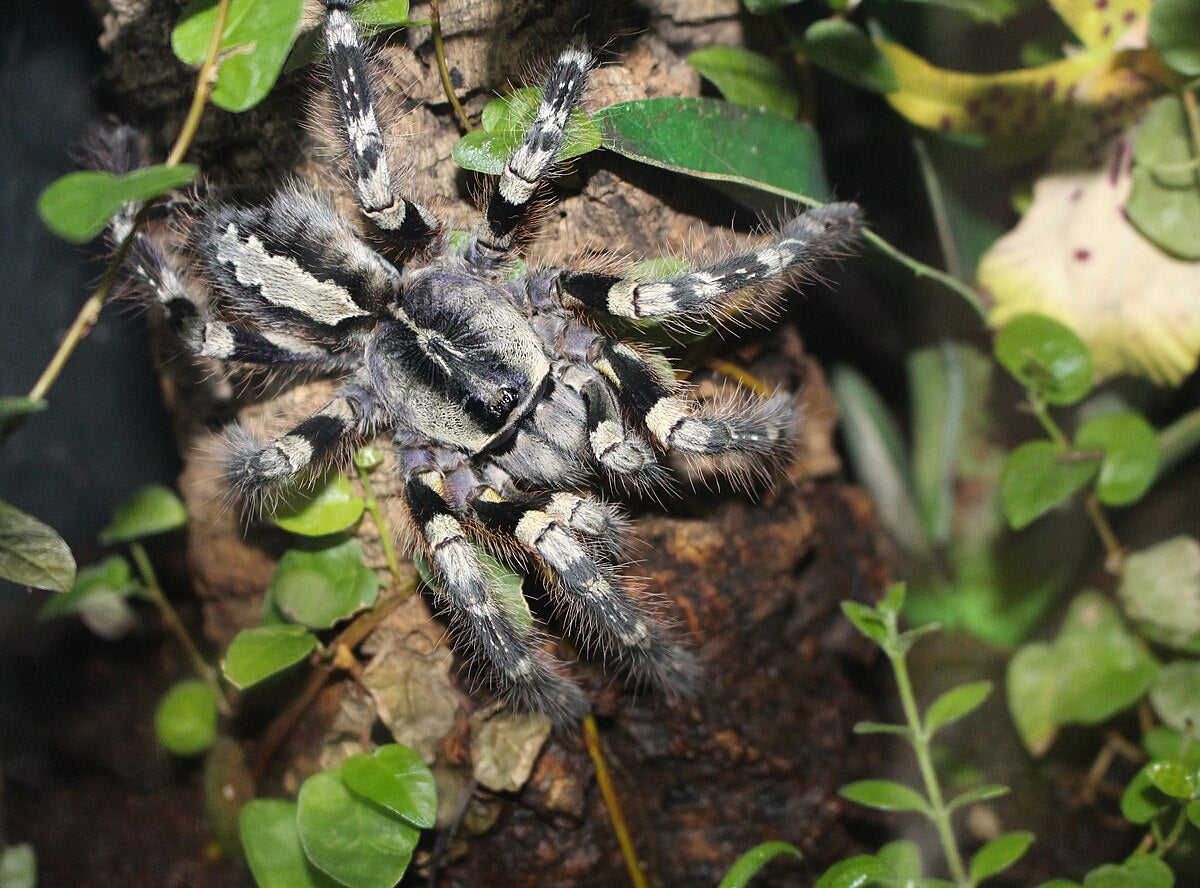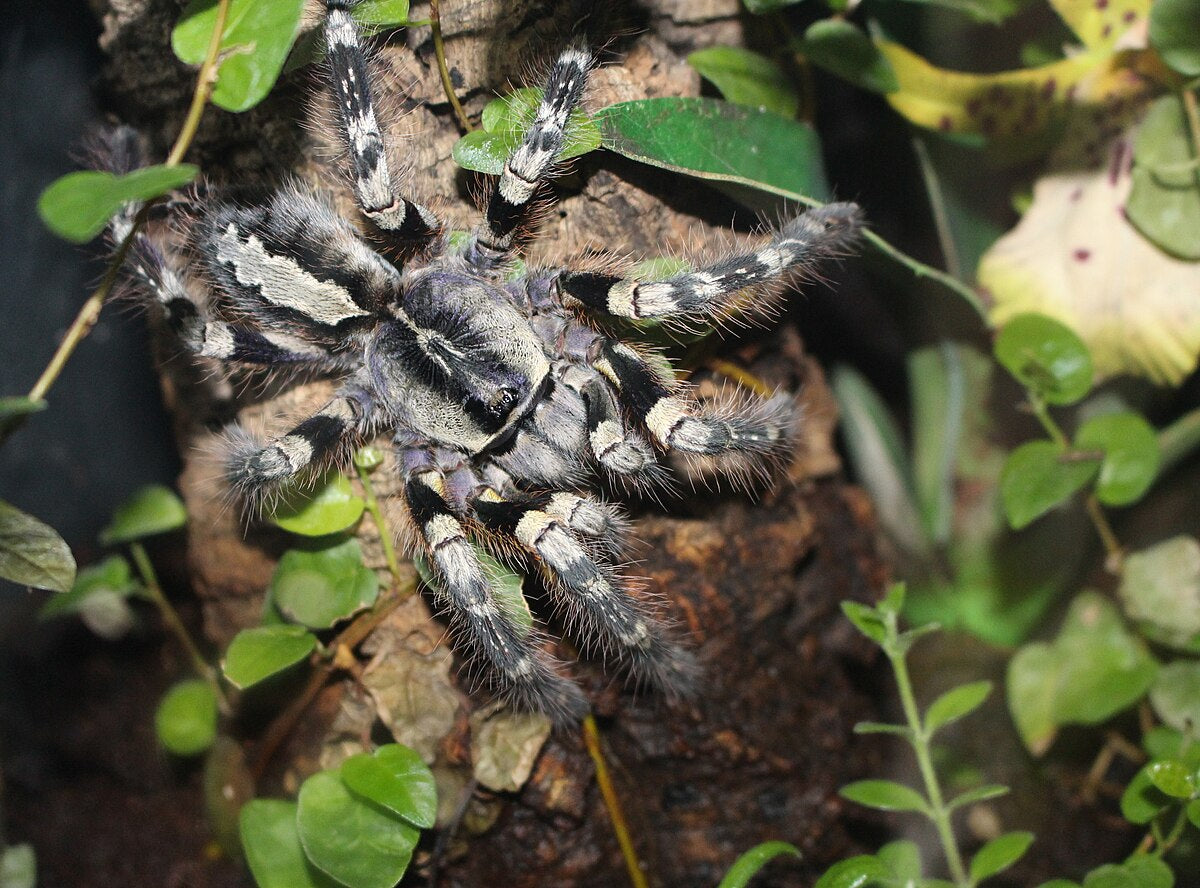Tarantuladen.co.za
Mysore Ornamental (Poecilotheria striata)
Mysore Ornamental (Poecilotheria striata)
Low stock: 4 left
Couldn't load pickup availability
A beautiful and elegant member of the Poecilotheria genus, P. striata is native to the forests of southern India. This arboreal species is admired for its intricate leg patterns, lightning-fast movements, and graceful posture — a true display tarantula for advanced keepers.
Quick Facts
Common Name: Mysore Ornamental
Scientific Name: Poecilotheria striata
Origin: India (Mysore region, Karnataka state)
Habitat Type: Arboreal – tropical forests
Size: 7–8 inches (17–20 cm) leg span
Lifespan:
- Females: 10–12 years
- Males: 3–4 years
Temperament: Fast, nervous, defensive — not recommended for handling
Coloration
Beautiful silver-grey base with intricate black and yellow markings
Legs: alternating light and dark bands, especially on the femurs and patellae
Abdomen: bold, cryptic patterns — typical of the Poecilotheria genusUnderside: black with pale yellow banding on the legs — visually striking during defensive displays
Housing & Care
Enclosure Type: Arboreal — tall enclosure with plenty of vertical climbing space
Substrate: Moist coco fiber or peat mix (2–3 inches)
Humidity: 70–80%
Temperature: 74–82°F (23–28°C)
Ventilation: High — Poecilotheria species dislike stagnant, damp air
Decor:
- Cork bark tube or large vertical hide
- Plants and branches for climbing
- Light webbing areas preferred
They tend to rest flat against the bark, camouflaging beautifully with their surroundings.
Feeding
Diet: Crickets, roaches, and locusts
Feeding Schedule:
- Slings: 2–3x per week
- Juveniles: Weekly
- Adults: Every 10–14 days
Strong feeding response — will strike quickly and decisively
Why Keep One?
Stunning silver and black patterning unique to the Mysore region
Fast-growing and visually impressive
A true showcase species for arboreal enthusiasts
Classic Poecilotheria beauty with regal temperament
Notes
Extremely fast and defensive — will bite if provoked
Venom potency: Considered medically significant (typical of Poecilotheria)
Requires secure, escape-proof enclosure
Best for experienced keepers familiar with Old World arboreals
Share


